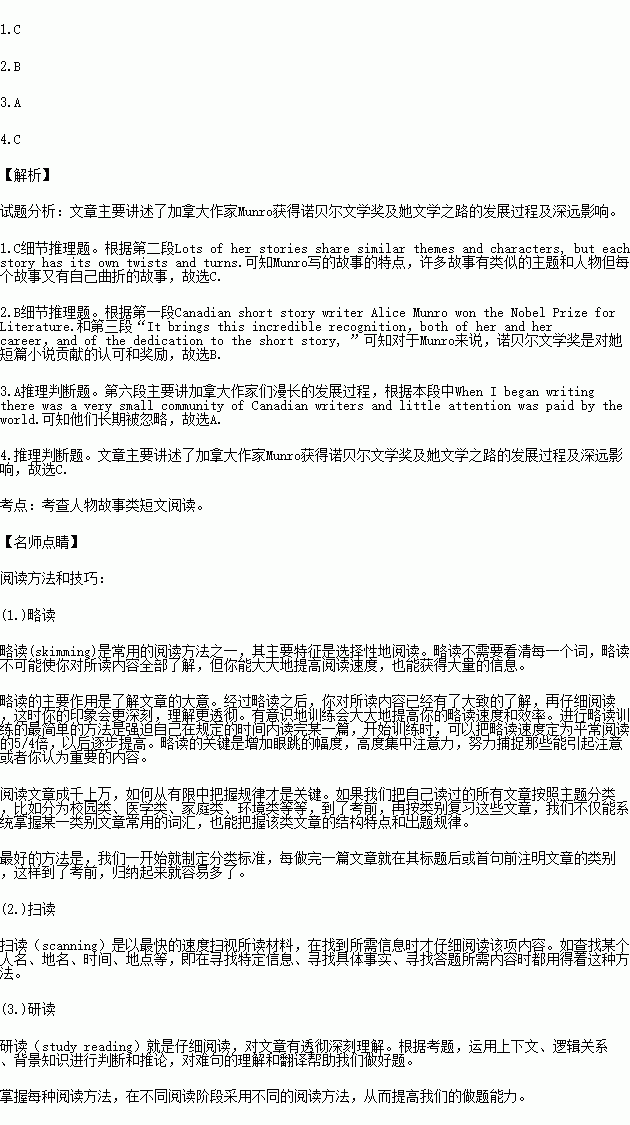题目内容
Canadian short story writer Alice Munro won the Nobel Prize for Literature. Eighty-two-year-old Munro is only the 13th woman to win the 112-year-old prize.
Munro didn’t publish her first collection of short stories until she was 37 years old, but her stories have always been well-received. Lots of her stories share similar themes and characters, but each story has its own twists and turns.
Even though she’s won Canada’s most famous literary award, the Giller Prize, twice, winning the Nobel Prize for Literature is the cherry on top of Munro’s career. “It brings this incredible recognition,both of her and her career,and of the dedication to the short story, ”said one person.
Along with the well-respected title comes 1.3 million dollars. Munro said everything was “so surprising and wonderful” and that she was “dazed by all the attention and affection that has been coming my way.”
Munro knew she was in the running—she was named the second-most likely person to win this year’s prize, after Haruki Murakami(村上春树)of Japan—but she never thought that she would win.
Munro’s win also represents the long way Canadian writers have come. “When I began writing there was a very small community of Canadian writers and little attention was paid by the world. Now Canadian writers are read, admired and respected around the globe,” Munro said on Thursday.
She is technically not the first Canadian to win the Nobel Prize for Literature, but many like to think that she is.In 1976 Saul Bellow, who was born in Quebec but moved to Chicago when he was still a child, won the prize. Even though he was born in Canada, he is mostly considered to be an American writer.
“This is a win for us all. Canadians, by our very nature,are not very nationalistic,” said Geoffrey Taylor. “But things like this suddenly make you want to find a flag.”
She wasn’t sure whether she would keep writing if she won the prize,saying that it would be “nice to go out with a bang. But this may change my mind.”
1.What is the feature of Munro’s stories?
A. They have specific themes for children.
B. They have similar story backgrounds.
C. They have their own complicated contents.
D. They have the same characters in each book.
2.For Munro, the Nobel Prize for Literature is an award for______.
A .her love for Canadian culture
B. her devotion to the short story
C. her special form of writing
D. her career of editing short stories
3.What is implied in the sixth paragraph?
A. Canadian writers have long been ignored.
B. Canadian writers are just a small community.
C. Canadian writers paid little attention to the prize.
D. Canadians have a long way to win the prize.
4.What does the passage mainly tell us?
A. How Alice Munro wins the Nobel Prize for Literature.
B. An introduction to the Nobel Prize for Literature.
C. Alice Munro wins the Nobel Prize for Literature.
D. A world-famous writer, Alice Munro.
 天天向上一本好卷系列答案
天天向上一本好卷系列答案 小学生10分钟应用题系列答案
小学生10分钟应用题系列答案
